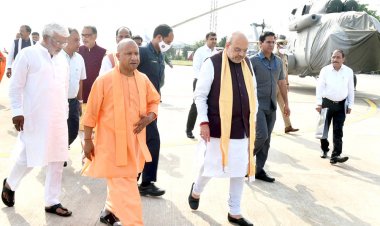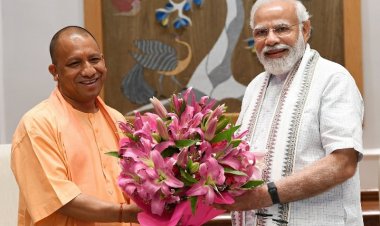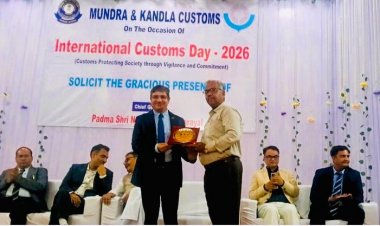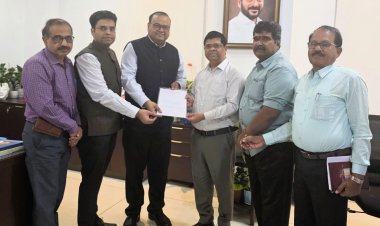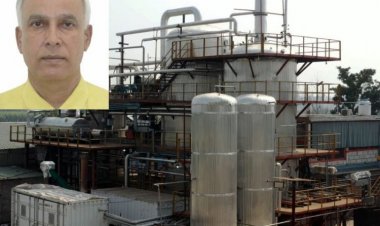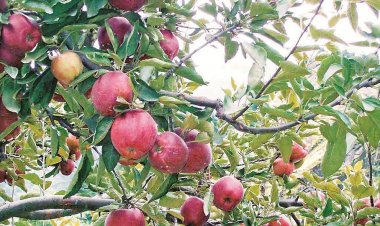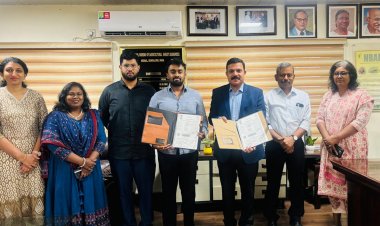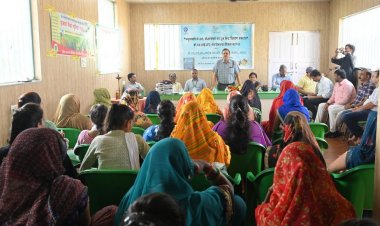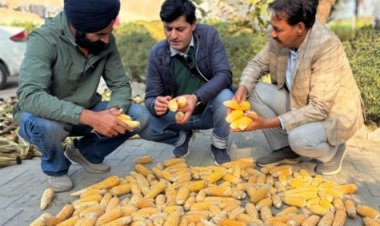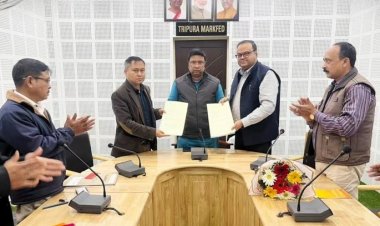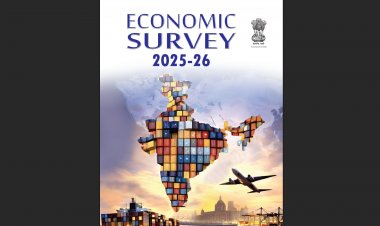Normalcy returns to UP Assembly elections
In conversations with the common people from Muzaffarnagar, Shamli, Baghpat, Deoband, Meerut, Bijnore and Ghaziabad, especially those from the rural areas, it becomes clear that division on religious lines is not going to be the main issue in the elections this year in these districts of UP that are considered to be communally sensitive. Rather, it would be more appropriate to say that matters concerning people’s lives and local issues have made a comeback in the UP elections this time. That the common people’s issues are coming back in the elections does not augur well for the BJP because this is not in tune with the electoral strategy of the party.
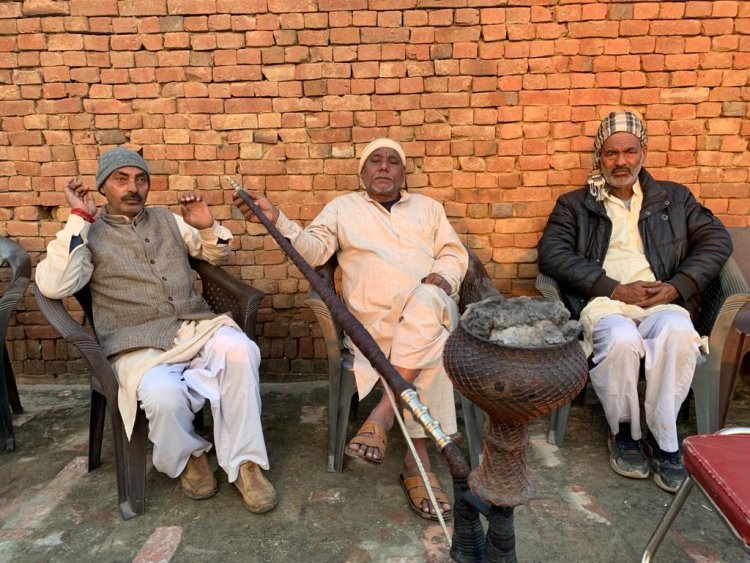
Aamvali, Kairana, Shamli, Muzaffarnagar
The election campaign for 58 constituencies of the first phase of the Uttar Pradesh (UP) Assembly elections has come to an end. These constituencies will go to the polls on February 10. Two days before the polls, let me take you to Aamvali, a village in Kairana, the Assembly constituency that has been the most in news in this phase. The votes are almost equally divided here among the Jat farmers, Muslims and other castes. Just a few moments before I meet Yogendra Singh Tomar, Nasim and Omvir Singh, a nukkad meeting was held here by Ikra Hasan, who has been campaigning for her brother and Samajwadi Party (SP) candidate Nahid Hasan. She has gone to campaign in another village.
When I speak to them on electoral issues, Yogendra and Omvir enumerate the problems of unemployment among the youth, higher power tariffs, delayed sugarcane price payments and stray animals. Nasim, who is in the tent business, emphasizes unemployment and shutting up shop. It may be a startling revelation that in the Assembly constituency where Home Minister Amit Shah launched the BJP campaign and spoke of Hindu exodus, the Hindu-Muslim divide is not an issue among the voters.
And this is not something that is confined merely to these voters from Aamvali. In conversations with the common people from Muzaffarnagar, Shamli, Baghpat, Deoband, Meerut, Bijnore and Ghaziabad, especially those from the rural areas, it becomes clear that division on religious lines is not going to be the main issue in the elections this year in these districts of UP that are considered to be communally sensitive. Rather, it would be more appropriate to say that matters concerning people’s lives and local issues have made a comeback in the UP elections this time. That the common people’s issues are coming back in the elections does not augur well for the BJP because this is not in tune with the electoral strategy of the party.
In fact, the first phase of the Assembly elections may be seen as signalling troubles for the BJP and better results for the SP alliance. Several big leaders from the BJP have admitted during informal talks with this writer that their party is suffering loss. For this, one needs to understand the electoral arithmetic.
In 26 districts of UP, the Muslim population is more than 20 per cent. And it exceeds 30 per cent in 14 of these districts. In Siddharthnagar, the Muslim population is 29.23 per cent, while in Baghpat, it is 27.98 per cent. This implies that if the Muslim vote unites in these 16 districts, BJP’s opposition parties will have a large vote bank. If they succeed in adding the votes of some other caste to this, it may become difficult for the BJP to win the election.
If we consider these districts, the Muslim population is as follows: Amroha (40.78 per cent), Bahraich (33.53), Bareilly (34.5), Bijnore (43.04), Budaun (23.26), Hapur (32.39), Ghaziabad (22.53), Meerut (34.43), Muradabad (50.80), Muzaffarnagar (41.11), Pilibhit (24.11), Rampur (50.57), Saharanpur (41.95), Sambhal (32.58), Shamli (41.73), Sant Kabirnagar (23.50), Amethi (20.96), Barabanki (20.96), Lakhimpur Kheri (20.18), Lucknow (21.46) and Shravasti (30.79).
In the current elections, the BJP’s election strategy is still one of carrying voters from the majority community along. It is as part of this strategy that law and order is being made a big issue while the party is not talking much about unemployment, inflation and farmers’ issues. But this strategy of the BJP is uniting the Muslim voters. At the same time, the non-Muslim voters are talking about issues concerning the common people. Although the average voter does admit that the law and order in the state is better than that during the Akhilesh Yadav-led SP government, the anti-Muslim election strategy is not working on them. They talk about inflation on the one hand and youth unemployment on the other. In the four western UP districts of Shamli, Baghpat, Muzaffarnagar and Ghaziabad, their resentment against the delay in cane price payments is quite palpable.
This has led to a situation where parallels can be drawn between the current Assembly elections and the General Elections of the Seventies. The Muslim voters are getting united but voters from the majority community stand divided. Given this situation, if the votes of any particular caste get combined with the Muslim votes, it can affect the results.
Among the districts of the 58 seats that go to the polls in the first phase, there are many with a large Muslim vote share. Due to the alliance between the Rashtriya Lok Dal (RLD) and the SP, the Muslim votes can be seen uniting in favour of the alliance. The Jats, who played a key role in the farmers’ movement, stand with the Jayant Chaudhary-led RLD in these elections and the SP candidates of the alliance are also benefiting from this. The RLD stands to gain massively from the farmers’ movement as its primary base consists of Jat votes. Due to the alliance, it appears that the Jat–Muslim votes will cause a reversal in the results in large numbers.
An important aspect of these elections is that barring a few seats, the Bahujan Samaj Party (BSP) has virtually disappeared from the stage. The average voter does not even know about the BSP candidates in most of the constituencies. Neither does one get to see its campaign anywhere. For the first phase, BSP chief Mayawati has held an election meeting only in Agra.
However, the BJP has been firing on all cylinders for the first phase. Besides Home Minister Amit Shah, Chief Minister Yogi Adityanath has been on a whirlwind tour, but what has dominated their speeches is an attempt to appease the majority voters besides law-and-order issues.
Therefore, politics in UP seems to be entering a new era with these elections. The BJP kept on attaining electoral success in 2014, 2017 and 2019 with the strategy of uniting the majority votes, but this time around the electoral atmosphere is yet to build in keeping with its strategy. It seems normalcy is returning to the elections in the state.
In a long conversation with this writer at his Muzaffarnagar residence, Bharatiya Kisan Union (BKU) national spokesman and farmer leader Rakesh Tikait says, “The UP elections are negating the notion of the Hindu-Muslim divide.” Regarding Jats and non-Jats, he says, “We are asking other fraternities not to leave the company of the Jats. We are asking people to focus on the issues of farming, inflation and unemployment.” However, he refrains from commenting directly in any way as to which party to vote for or against.



 Join the RuralVoice whatsapp group
Join the RuralVoice whatsapp group

















